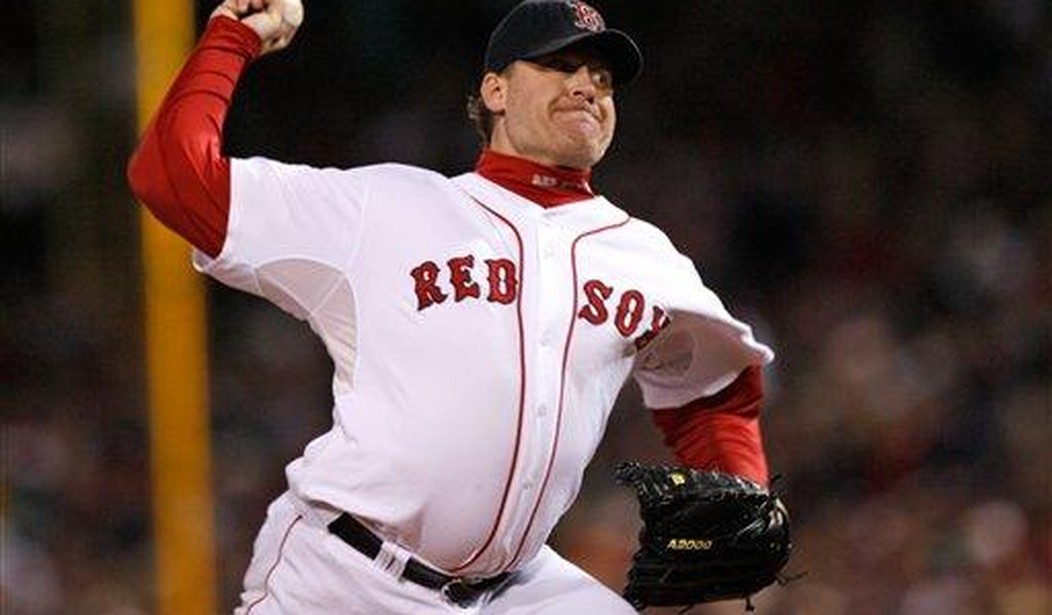The measure of career greatness is heavily dependent on how you are perceived personally and politically.
Today was the unveiling of the nominees for the Baseball Hall Of Fame, and more than any other venerated institution measuring the upper echelon of an industry the Major League Baseball selection process always seems to arrive with a fair measure of controversy. This year was no exception, as pitcher Curt Schilling was considered, and came at the top of the selection process. This rankled many in the baseball ranks.
The concept of a Hall of Fame is usually a nebulous standard, one made more fluid based on the entity that is recognizing all-time greatness. The Rock-And-Roll HOF, for instance, is rooted in art so something subjective is granted definitive ‘’greatness’’. (Looking over many of the acts, the definition of ‘’Rock-and-Roll is also subjective.) In most sports there is a fairly understandable, if not specifically detailed, standard for inclusion. Baseball has always generated squabbles amongst its devotees.
Good players who had lengthy careers where they compiled requisite numbers are argued not to be valid. Sometimes a clear entrant is questioned for not winning a championship, while others are suspect for toiling on subpar clubs and not elevating a franchise in a sufficient fashion. Then there was the ‘’Babe Ruth Rule’’. Because Ruth and Ty Cobb were not admitted with a 100% level of voting approval on the first-ever HOF vote some old-school writers would leave off obvious selections from their ballot as a vote of defiance.
For that reason, we saw blatant picks for The Hall be denied unanimous selection forever. Hank Aaron fell 9 votes shy of 100%, Cal Ripken Jr. and Nolan Ryan missed it by 8 votes, Tom Seaver by 5 votes, Cobb by 4, and Ken Griffey Jr. by only 3 votes. It was not until 2019 when Mariano Rivera became the first and only entrant to garner 100% entry. The baseball writers, who are caretakers of the vote, always profess how deeply important and solemn their selection is, but to then withhold their pick, out of some fractured tradition based on voters from over a century earlier who probably made flawed choices, undermines whatever claim to orthodoxy they have.
This year the uproar involves Curt Schilling, and it has nothing at all to do with his on-field prowess. His lengthy career as a successful pitcher has the touchstones you expect for an inductee, including three Championships, a World Series MVP, the NLCS MVP from another year, and a postseason W/L record of 11-2 in 19 starts. Sterling stats, to be sure — and he probably will not be inducted. Why? Because of his post-career politics.
Schilling is an avowed conservative and shared his views on various media, including published works and his own radio show. He has long backed GOP candidates and has been no stranger to social controversy, often inciting more reactions in his refusal to back down as ordered by scolding voices. His avowed support of President Trump made him more polarizing, leading to outlets like Outsports to declare Schilling to be in possession of, ‘’transgressions against replacement-level human decency.’’
So the question becomes, is a Hall of Fame supposed to recognize on-field greatness, or does off-the-field and/or post-career positions and comments somehow negate what was accomplished between the lines? One of the common arguments made today is that a number of other great players who would otherwise be in The Hall are excluded, such as Pete Rose, Barry Bonds, Mark McGuire, and Roger Clemons. If they are to be ostracized, goes the argument, then it is just as valid to keep Schilling out as well.
There is a difference, however. Those listed players are branded by outside forces that carried over into, or directly impacted their gameplay. The gambling and illegal performance drug use were not only character issues, they reflect directly on their performances within the game. It calls into question the quality of their gameplay, the very measure of their HOF credentials. Schilling’s issues — the merit of which are socially debatable — had no bearing on what he did while he was a pitcher.
This basically comes down to whether or not an individual’s character displayed after their career is something to weigh in when measuring their level of baseball prowess. This not only alters the impression of the induction process but it can actually dilute the intent of the honor. They want to honor great gameplay, but if you do not comport yourself in an approved fashion your career accomplishments become compromised. This is something that should not be welcomed.
What if a player is deemed unfit for inclusion due to an arrest record? Then, what if the arrests were for social protests, is that considered acceptable and morally upright? But what if the protests were outside an abortion clinic? Here is where the determination becomes more problematic. And can also lead to another issue.
Looking at another sport, what if a player has a career that was middling, but he is elevated to star status as a result of his social activism. Consider this reality on the horizon — ‘’Hall Of Fame quarterback Colin Kaepernick.’’ The very fact that we can see this as a very real possibility in today’s environment means that this is an avenue that sports should not be looking to travel down.














Join the conversation as a VIP Member